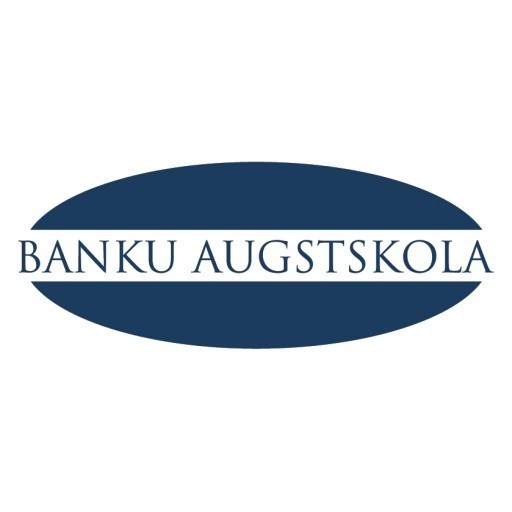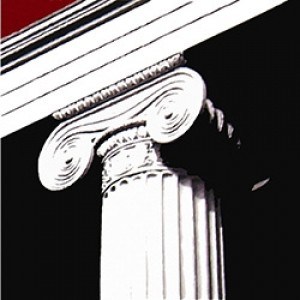Photos of university / #tilburguniversity
The Bachelor’s program in Accountancy at Tilburg University offers a comprehensive and rigorous education designed to prepare students for a successful career in accounting, auditing, and financial management. This program combines theoretical knowledge with practical skills, ensuring graduates are well-equipped to meet the demands of the dynamic accounting industry. Throughout the three-year curriculum, students gain a deep understanding of financial reporting, management accounting, auditing, and tax law, as well as the ethical considerations relevant to the profession. The program emphasizes the development of analytical thinking, problem-solving abilities, and communication skills needed to interpret complex financial data and advise organizations effectively. Students have the opportunity to learn from experienced faculty members who are actively engaged in research and practical consulting, providing real-world perspectives. The program also incorporates various case studies, group projects, and internships, allowing students to apply their knowledge in practical settings and build a professional network. Tilburg University’s strong connections with industry partners and accounting firms facilitate internships and job placements, enhancing career prospects upon graduation. Graduates of the Bachelor’s in Accountancy program are prepared to pursue further specializations or professional certifications such as the Certified Public Accountant (CPA) or Chartered Accountant (CA). The program's international orientation, with courses taught in English and diverse student cohorts, prepares students for global careers in accounting and finance. Overall, this program aims to develop responsible, analytical, and innovative accounting professionals capable of making a positive impact in the financial sector and wider economy.
The Bachelor’s programme in Accountancy at Tilburg University offers a comprehensive and rigorous education designed to prepare students for a successful career in the accounting and financial sectors. This programme provides students with a thorough understanding of accounting principles, financial reporting, auditing, taxation, and management control. Throughout the three-year course, students will develop strong analytical and problem-solving skills, enabling them to interpret financial data accurately and make informed decisions in complex business environments.
The programme emphasizes both theoretical knowledge and practical application, ensuring that graduates are well-equipped to meet the demands of modern accounting practices. Students will learn how to prepare, analyze, and interpret financial statements, assess financial performance, and understand the legal and ethical considerations associated with accounting. Additionally, the curriculum covers areas such as corporate governance, internal control systems, and the role of accounting in sustainable business practices.
Interactive lectures, case studies, group projects, and hands-on internships are integral elements of the programme, fostering active learning and real-world experience. The programme also includes opportunities for students to specialize in areas such as external auditing or management accounting, aligning their education with their career aspirations.
The programme is designed not only to develop technical expertise but also to enhance critical thinking, communication skills, and ethical judgment. Graduates of the Accountancy programme will be prepared to pursue careers in accounting firms, corporations, government agencies, or to continue their studies at the master's level. With its strong emphasis on current accounting standards and practices, Tilburg University’s Accountancy programme aims to produce highly skilled professionals who can contribute effectively to the financial integrity and transparency of organizations worldwide.
Admission requirements
GMAT (average score 600)
Other requirements
- ingangstoets GMAT (average score 600)
- taaltoets cijfer Proficiency in English is required. Students who obtained their Bachelor's degree in the Netherlands and native English speakers are admitted without an English proficiency test.
- taaltoets cijfer De masteropleidingen zijn geheel of gedeeltelijk Engelstalig. Beheersing van de Engelse taal is dus een vereiste, en kan door de student aangetoond worden op de volgende manieren: *Een TOEFL-test met een minimale score van 575 (paperbased) of een score van 233 (computerbased) of een score van 90 (webbased); *Een IELTS-test met minimaal een 6,5 en een minimale score van 6.0 op afzonderlijke delen van de test; *Een Vwo-diploma met een voldoende voor Engels; *Cambridge Certificate of Advanced English (CAE) met een minimum score A, B of C; *Cambridge Certificate of Proficiency in English (CPE); *Cambridge Certificate of English: Business Higher (BCE); *Cambridge International Certificate in Financial English: C1 level; *Bachelordiploma van een Hbo-opleiding waarvan ten minste de laatste drie jaren het onderwijs volledig Engelstalig is; *Een bachelor diploma van de HBO-opleiding Commerciële Economie, Fontys Hogeschool Eindhoven; *Een bachelor diploma van de HBO-opleiding Commerciële Economie, Avans Hogeschool te 's-Hertogenbosch.
- vooropleiding (ISPAC: vereiste vooropleiding) Best preparatory Bachelor's programs Business Economics, International Business or Business Administration
- minimum kennis (ISPAC: overige vereisten) Een solide basis in de volgende vakgebieden is noodzakelijk: *Accounting (12 ECTS) *Financiering (12 ECTS) *Economie, Management, of Marketing (12 ECTS) *Wiskunde en Statistiek (18 ECTS) *Academische vaardigheden (24 ECTS)
- schriftelijk verzoek Students need to submit a motivation letter in their application
The financing of the Accountancy master’s program at Tilburg University is structured through a combination of government grants, student contributions, and additional financial support options. The program's tuition fees for European Union (EU) students are set annually by Dutch legislation and are generally lower than for non-EU students. EU students pay approximately €2,200 per year, whereas non-EU students are billed around €13,000 per year, although these figures may fluctuate annually. Students can finance their studies through various means, including personal savings, family support, or student loans. The Dutch government offers student loans and grants via the Dienst Uitvoering Onderwijs (DUO), which can cover living expenses and tuition fees for eligible students. International students from outside the EU typically finance their studies through scholarships, private loans, or sponsorships, as Dutch government funding is generally not available to non-EU students. Tilburg University also provides several scholarship opportunities for both Dutch and international students, aimed at reducing financial barriers. These include merit-based scholarships for high-achieving students and needs-based grants for students demonstrating financial need. Additionally, students are encouraged to explore external scholarship programs offered by governmental agencies, foundations, and international organizations that support students studying in the Netherlands. The university also offers part-time employment options and internships within the campus or in collaboration with local and international firms, allowing students to supplement their income during their studies. The costs associated with living in Tilburg are relatively moderate compared to larger Dutch cities, which helps students manage their finances effectively. Students are advised to plan their budgets carefully, taking into account accommodation, health insurance, study materials, and daily expenses. The program's fees and funding opportunities are frequently updated and can be obtained directly from Tilburg University’s official website or by contacting the university’s admissions and financial aid offices. Overall, Tilburg University aims to facilitate access to education through diversified funding options, support services, and scholarships, ensuring that talented students can pursue their studies without undue financial hardship.
The Bachelor’s programme in Accountancy at Tilburg University offers a comprehensive and rigorous education designed to prepare students for a successful career in the field of accounting and financial management. The programme is structured to provide students with a solid foundation in accounting principles, financial reporting, auditing, and taxation, combined with insights into business strategy and organizational management. Over the course of the programme, students gain practical skills through case studies, group projects, and internships, which help them to apply theoretical knowledge in real-world contexts.
The curriculum emphasizes analytical thinking, ethical standards, and the development of a professional attitude, which are essential qualities for future accountants. Students also learn about the latest developments in accounting standards and technology, including how digital tools transform the profession. The programme is designed to align with international accounting standards, enabling graduates to work in diverse global markets. The teaching methods include lectures, workshops, guest lectures from industry professionals, and interactive seminars to promote active learning.
Students have access to Tilburg University’s extensive network of alumni and partnerships with leading organizations, providing valuable networking and career opportunities. The programme also offers specializations and electives in areas such as forensic accounting, management accounting, and accounting information systems, allowing students to tailor their education to specific interests and career goals. Graduates of the programme are well-equipped to pursue careers in audit firms, accounting departments within various industries, consultancy firms, or to continue their studies at the master’s level.
The language of instruction is English, reflecting the programme’s international orientation. Admission requirements typically include a relevant secondary school diploma with strong mathematics and economics grades. The programme is designed to foster critical thinking, ethical awareness, and professional competence, positioning students to become responsible and innovative professionals in the accounting field. With a focus on both theoretical knowledge and practical skills, the Bachelor’s in Accountancy at Tilburg University aims to produce highly competent graduates who are prepared to meet the challenges of a dynamic and evolving industry.








